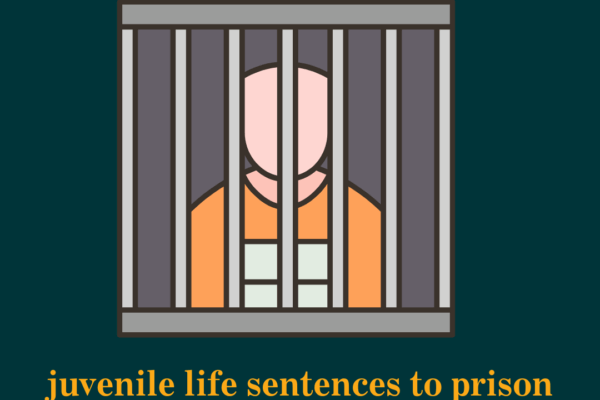The United States stands alone as the only nation that sentences people to life without parole for crimes committed before turning 18.
In the late 1980’s and 90’s, policymakers were driven by the “Super-Predator Theory” which stated that a new generation of child predators was coming of age with youth who were more violent and less remorseful than ever before. States responded with laws treating youth as adults and thereby exposing them to highly punitive mandatory minimum and excessive potential maximum sentences.
Years later, the super-predator theory was disproven. There never was a violent juvenile crime wave, but the policies remained in place, including life without parole for children. Black youth are serving life without parole at a per capita rate that is 10 times that of white youth.
While these policies continued to incarcerate thousands of youth across the country, adolescent development research was revealing new information about children’s brains and characters that are still forming. Children do not have adult levels of judgment or the ability to assess risks. They are also uniquely capable of rehabilitation. The new science requires that youth be held accountable in age-appropriate ways with a focus on rehabilitation and reintegration into society.
Judicial decisions have repeatedly ruled that functional life sentences for crimes committed by juveniles are cruel and unusual, in violation of the Eighth Amendment, except in rare instances.
As of May, 12 states – including Florida, North Dakota, and Colorado -- and the federal government had enacted “second look” policies, which give those convicted of crimes as juveniles an opportunity for judicial review of their sentences after they’ve matured.
Other states – including Louisiana, North Carolina, Tennessee, and Ohio – have addressed this issue through their courts. The issue has been raised in Alaska’s courts too, with a recent ruling in Winona Fletcher’s case.
Life without parole in Alaska
In 1985, Winona Fletcher and her then 19-year-old boyfriend broke into a home in the Russian Jack neighborhood, and they killed a husband and wife, Tom Faccio and Ann Faccio and Faccio’s 75-year-old sister. Fletcher was 14 at the time of the murders.
Despite Fletcher’s age and lack of previous criminal history, a judge said she should be tried as an adult because she was an unlikely prospect for rehabilitation. She was sentenced to 135 years of prison, a functional life sentence.
Based on a series of U.S. Supreme Court decisions that require courts to recognize that only rare youths cannot be reformed as they mature, the Alaska Court of Appeals ruled last year in Fletcher’s case that the state constitution requires a sentencing judge to consider “the attendant characteristics of youth” – including their immaturity and underdeveloped sense of responsibility, which lead to recklessness, impulsivity, and needless risk-taking; their vulnerability to peer pressure and inability to extricate themselves from horrific, crime-producing settings; and the fact that their characters are not yet well-formed, so their actions are less likely to be evidence that they cannot be rehabilitated. Only when there is evidence that a youth is “irreparably corrupt” may the court impose a sentence that amounts to life without parole.
Earlier this summer, the ruling was applied retroactively to Winona Fletcher as well as other people sentenced as juveniles to what amounts to life without parole.
While this retroactivity ruling only impacts a few Alaskans who were sentenced to functional life sentences as children, it offers potential change to the decades of practice that have locked up juveniles as if they were adults without considering the massive differences between the two groups.
The financial costs of treating juveniles as adults
Sentencing juveniles to a lifetime in prison is not only unconstitutional, but it costs taxpayers millions of dollars. Nationally, it costs about $33,000 to incarcerate a person for a year, and that figure doubles after the age of 50, largely because of increased medical costs. A 50-year sentence for a 16-year-old will cost the state more than $2.25 million.
Alaska does not have the funds to support the unconstitutional sentencing of functional life sentences for children.
Alaska’s Constitution calls for incarceration to be punitive and rehabilitative for Alaskans who commit crimes, no matter their age. Life without parole, or functional life sentences, does not allow the juvenile to seek rehabilitation in a meaningful way.
The ACLU of Alaska’s Prison Project seeks changes to excessive juvenile sentences because such sentences do not meet the goals of our criminal legal system. They also further cycles of trauma and violence, and are a costly failure in addressing community safety.


